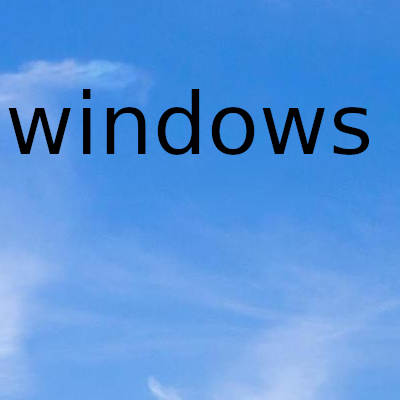
There are many threats that are present in the network today. Many types of attacks that can compromise our privacy and security.
Now, luckily we can also implement a series of interesting tips to increase our safety. Today we are going to talk about it. We will explain how to block scripts in Windows to avoid, among other things, Emotet malware. Thus we will put an extra layer of security in our system and we can protect ourselves in case of receiving different types of attacks that can use this method.
The security risk in the network
The truth is that the Internet offers us a wide range of possibilities in every way. This also includes an interesting repertoire for cybercriminals. They can make use of multiple platforms and tools to carry out their attacks. Normally they require the interaction of the user, of the victim. However on other occasions they may be based on vulnerabilities or bad system configuration.
Within all the possibilities they have to carry out their attacks, without a doubt the email has become something widely used. Virtually everyone has an email account, either on a personal or business level. This means that hackers can set their sights there to attack.
Among other things you can attach a simple Word file that asks us to enable macros. These macros could enable different types of attacks such as the one caused by Emotet malware. If we enable that content we could put our system, our device at risk and even affect other users within our contact list.
Logically, the main advice in this case is never to enable macros in a Word file that we receive. It doesn't matter who sent it to us. Even if it is a user we trust, as it could be an attack that has previously affected that person. Therefore we must always have common sense in these cases and be very careful with all kinds of attachments that we receive to our email account.
How to block scripts in Windows
Now, something we can put into practice is to block the scripts in Windows to all users. In this way we can avoid problems such as what we have mentioned to enable macros when receiving an email.
Blocking scripts in Windows can free us from attacks such as Emotet malware and similar ones. Luckily you just have to follow a series of simple steps that we will explain. Once done we will have scripts locked in our Microsoft operating system.
For this we can use the Windows Registry. The first step is to go to Start, write regedit and run it as administrator. Once we are here you must access the path HKEY_LOCAL_MACHINE \ SOFTWARE \ Microsoft \ Windows Script Host. It is there where we will have to change the value to block the scripts.
Once we reach this route, which we can access by simply pasting what we have put, we will see a single document. There you have to click on Setting and create a new value. To do this we right click on a blank space, we give New and DWORD value (32 bits). We put Activated and in the value we will have to put 0. In this way we will be blocking the scripts.
In short, by following these steps we have mentioned we can improve the security of our Windows system. One more layer to protect us against possible emails with dangerous Word files, for example. Thus we will defend against malware like Emotet and other similar ones that can damage the proper functioning of our equipment.
On the other hand, beyond this we have mentioned, it is always important to have security software. In this way we can detect other varieties of malware that may put our system at risk. In the same way it is also important to have updated equipment. Sometimes vulnerabilities arise that are exploited by hackers to carry out their attacks. Through security patches and updates we can correct these problems.
Date update on 2019-10-13. Date published on 2019-10-13. Category: windows Author: Oscar olg Fuente: redeszone